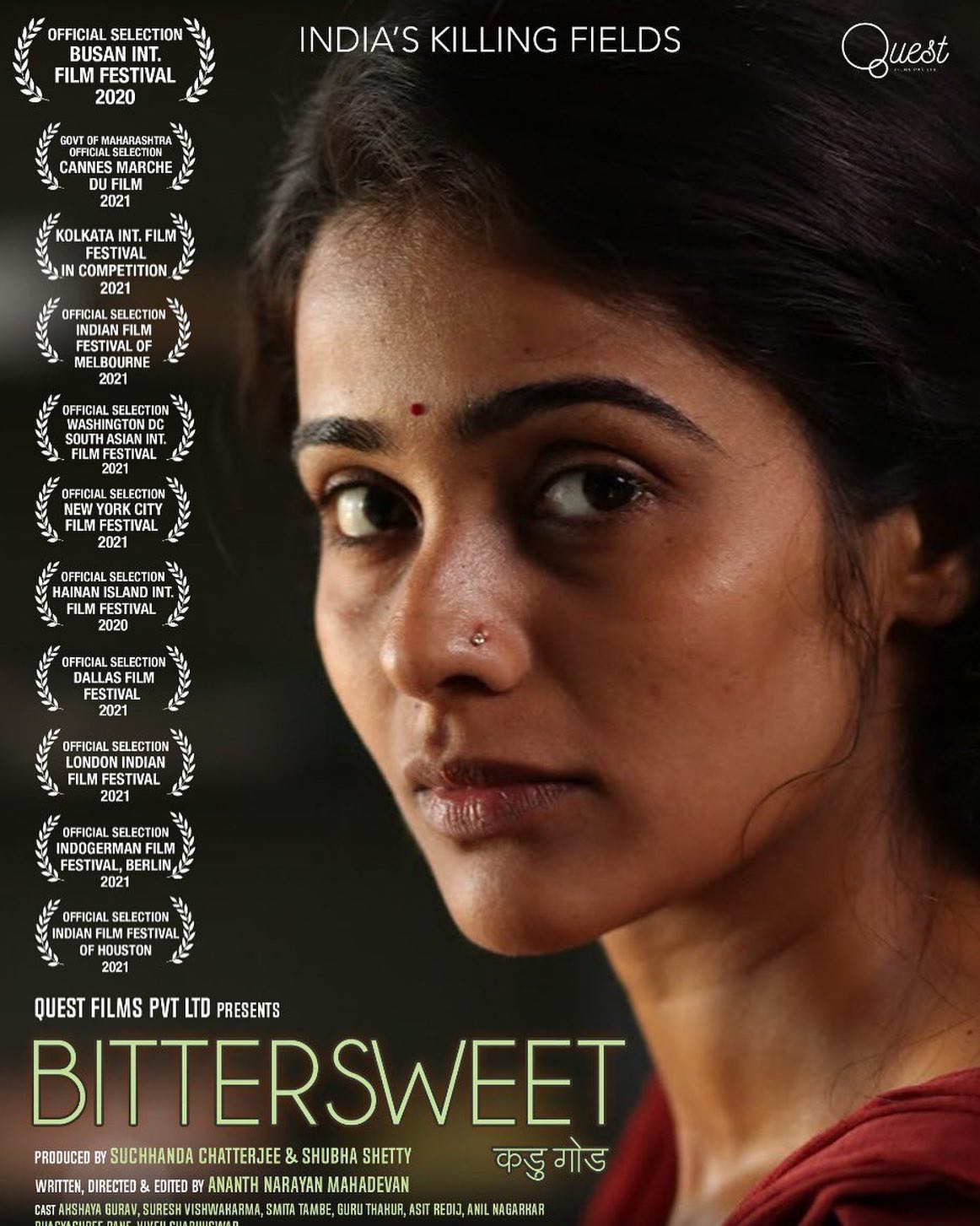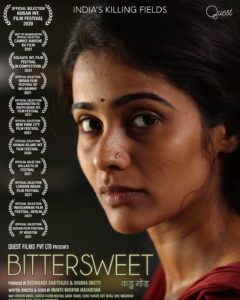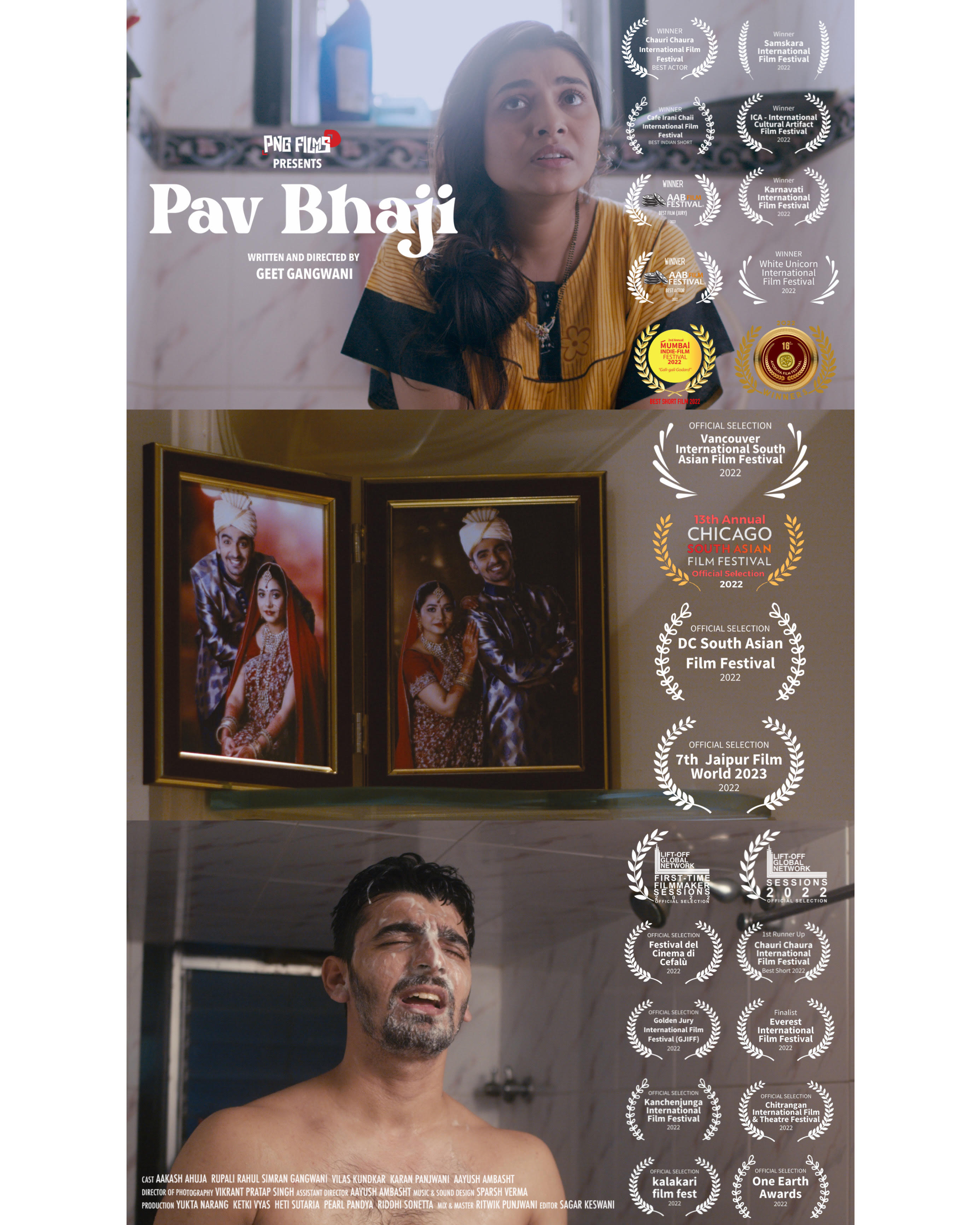
NYC SAFF 2021 Indie Film Review “Bittersweet”
WATCH THE TRAILER HERE
First, the Recap:
You would do anything for your family. It’s a commonly stated blanket statement that reflects the total loyalty we strive to maintain when it comes to our blood relations. This is, of course, a wonderful sentiment and goal to aim for. But, what might occur if, in order to sustain a struggling household, you have to watch your own dreams fade away? At twenty-two years old, Saguna (Akshaya Gurav) has her whole future ahead of her. This is at least until the sudden realization is placed upon her that familial debts have reached a point where her notions of college and beyond will be replaced by having to work in the brutal conditions of the sugarcane fields. Determined to make things better for her family, Saguna tries to make the best of a tedious, dangerous, and corporate-minded job that cares nothing for the workers’ well-being–except to push them to limits that will force Saguna to sacrifice more than just her labors unless something can initiate desperately needed reformation.
Next, my Mind:
Corporate politics, seemingly impossible quotas and production statistics, uncontrollable natural cycles, unforgiving conditions, and the harsh realities of what price could be paid to restore familial stability, this 101-minute indie feature film from writer/director/editor Ananth Narayan Mahadevan, producers Suchhanda Chatterjee and Shubha Shetty, along with executive producer Rohan Godambe delivers an often emotionally jarring, dramatically forceful, undeniably conclusive narrative that plumbs the depths of not only the facets explored above, but gender devaluation, patriarchal mentalities, and the blatant necessity of refining the plight of manual laborers as depicted so deftly and impactfully through this based-on-real-experiences narrative. The film was screened at its NYC Premier, a part of the 2021 NYC South Asian Film Festival sponsored by Toyota USA and hosted by Festival Director/Jingo Media Founder Jitin Hingorani and Artistic Director Ambica Dev.
Presenting the story of a young 20-something woman’s world getting turned upside down when she’s effectively forced to make the decision to work in the sugarcane fields to aid in paying off her family’s already deep amount of debt, the film wastes no time pressing the viewer into the unsympathetic, punishing actuality these primarily (but not exclusively) female workers are having to confront, not only from the literal physical standpoint due to morale-depleting shifts in the fields, but also from the wholly neglectful demeanors and hypocrisy of the mainly male-dominated company management who only seek the bottom line no matter what it costs. This latter concept in itself may be nothing new in the business world, but here it is taken to a shocking degree when we are made to understand a specific means by which the company enacts in order to maintain their worker’s ability to remain in the fields with no pain and hardly any rest–hysterectomy.
Suffice it to say that the action in question is performed illegally, yet is carried out with impunity and at even more cost to the worker, whose both docked in their pay for ANY missed time and charged a fine payable to the sugar contractor. In so many ways, this film makes the workplace look like a full-on prison camp and a serious awareness-raising battle cry to see this treatment exposed and, ideally, ended. The film addresses the notions of automation of the process being illustrated, which would therefore put many people out of work. But, by the film’s affecting finale, I will only say it does breathe at least a hint of hope into the mix thanks to its focus on seeing this kind of mistreatment would never occur in the future, and as seen through the perspective of Suguna, it makes the message here stick that much more and with a tangible, utterly empathetic connection to the character while wishing to know justice can be gained for her and the other worker’s unfortunate and heart-rending reality.
There is a complete necessity for film efforts like this one to be put out there, as even though the narrative here is fictional, the truth of much of what’s portrayed is very real and this critic has never made it a secret that any issue deserving notice should be placed in front of us in order to be beacons and catalysts for what we hope would be deeper acknowledgement and subsequent transfiguration of these circumstances. This is the always-present power of indie cinema and the filmmakers who are willing to put it out there for causes like this, even if contained within a fictional work. Visually the film is highly stirring and compelling as it unflinchingly showcases the environment these workers are toiling in with virtually no rest, no true recognition for what they’re accomplishing (other than it’s never enough), and simply no acknowledgement as anything else but a dispensable object. It’s hard to put yourself in their shoes to fully comprehend it, and honestly, you wouldn’t really wish to, which only puts deeper sympathy in your heart for them.
Gurav is unequivocally wonderful, engaging, endearingly heartbreaking, and just flat out believable through her performance here as Saguna, a young woman of great promise and drive for the future who suddenly watches her life take a drastic turn when everything she has planned is supplanted by having to help save her family from ruin by becoming a worker in the remorseless fields harvesting sugarcane. Even as she makes every effort to increase her own production, heartless truths begin to be revealed, which Saguna initially fights wholeheartedly against, refusing to quit or back down, but soon has to face the inflexibility of an uncaring business and the inescapable facts that it may all come down to sacrificing her womanhood and identity to salvage her life and discover the means to end the suffering she experiences and sees. It’s gut-wrenching to take this in, and Gurav effectively, emotively, and realistically draws you in and keeps you glued to the screen and narrative thanks to her presence on screen.
Primary supporting roles arrive from Anil Nagarkar as Karande, the government recruiter whose own personal travails involving a daughter could end up swaying him to Saguna’s outlook and desire for change at the factory and fields, Smita Tambe as Saguna’s mother who has already paid her own price for having to work the fields and is doing everything to prevent her daughter from facing a similar fate, Guru Thakur as the factory doctor who has the illegal operations performed on the women who are made to believe they have no choice if they wish to keep working as they’re expected to, Aasit Redij as the factory owner who presses Karande to up production with his workers or be replaced by automation, Suresh Vishwakarma as the government secretary who also makes it clear that production is all they’re looking for regardless of what it takes, Vinayak Diwekar as Saguna’s father whose debts are what’s lead his family into the fields, Bhagyashree Pane as one of Saguna’s companions in the fields who tries to teach her as much as she can, and Vivek Chabukswar as Jagan, Saguna’s brother.
So, in total, “Bittersweet” jolts and influences us through a narrative that delivers the ultimate atmosphere its title suggests. Bitter in the portrait of corporate neglect, worker abuse, and the unyielding cost paid by all involved in the industry represented, but likewise sweet in that despite all the heaviness of the themes given to us to absorb, there’s still a message of incredible perseverance and hesitant yet voluntary sacrifice in the name of change, with the inspiration it produces, even if in a sobering manner. This critic wishes to have faith that a film like this WILL make the socially relevant waves it should so that said change WILL come about so that stories like Saguna’s will NEVER occur again.
As always, this is all for your consideration and comment. Until next time, thank you for reading!



